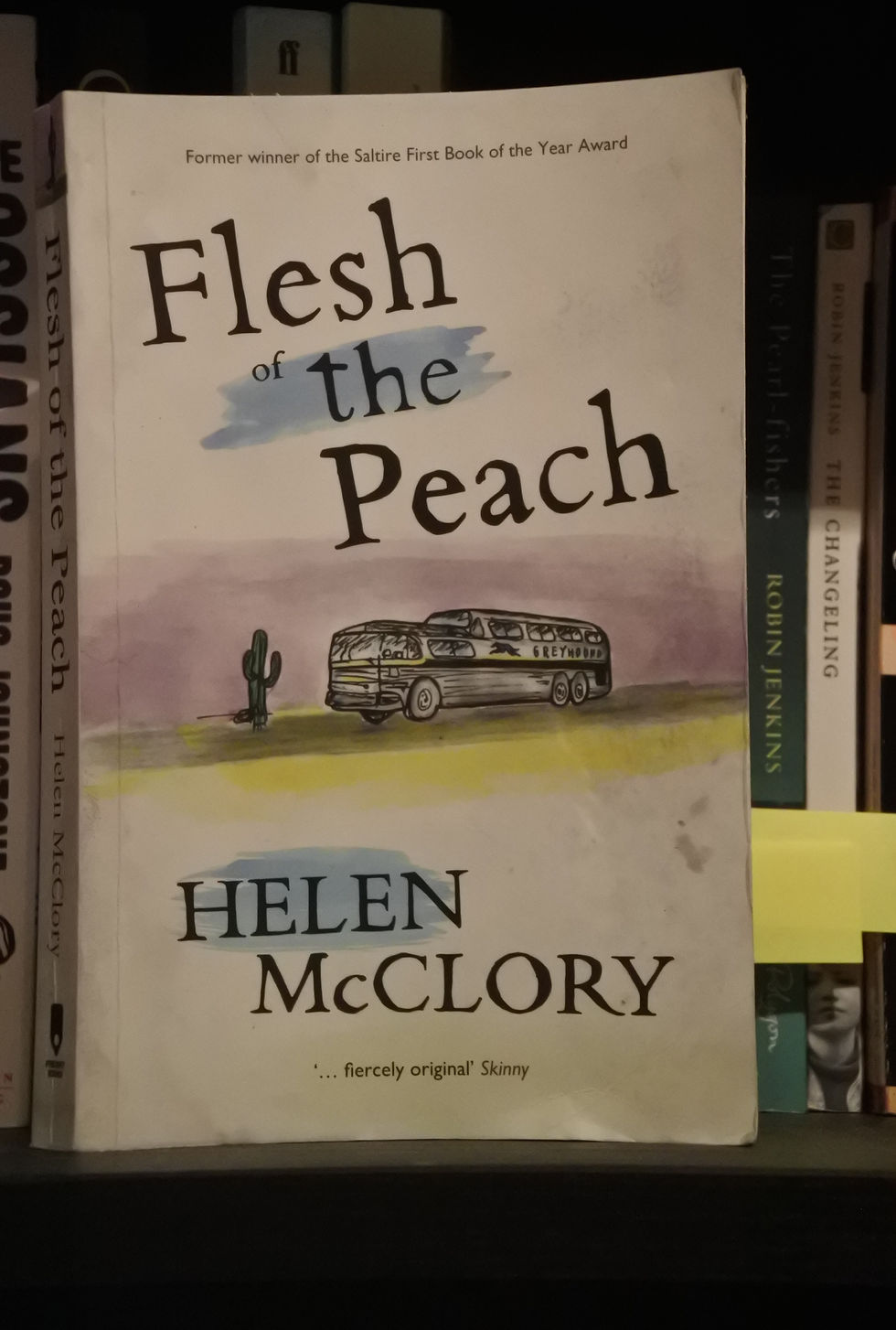American Beauty: A Review Of Helen McClory’s Flesh Of The Peach…
- Alistair Braidwood
- Jul 6, 2017
- 3 min read
Updated: May 27, 2021

It’s a novel about grief and self-loathing in southwest America, and how dealing with those emotions is as difficult and potentially destructive as life gets. Flesh Of The Peach opens in New York where English artist Sarah Browne is left reeling from the end of an affair with the married Kennedy, a woman in whom Sarah had staked unrealistic hopes of happiness, not realising, or perhaps realising all too well, that this was a doomed relationship from the start. For someone who sees herself as a failure it is exactly the sort of liaison which will simply prove that beleif to be true once more.
This coincides with news of the death of her mother, a woman whose success and fame cast a long shadow over Sarah. This loss brings with it the promise of a large inheritance, a situation almost designed to marry guilt, sadness, anger and uncertainty. These significant events cause Sarah to reflect on her life to this point as she chooses to leave New York and take a Greyhound to New Mexico, rather than return to England. This choice is significant as it represents the idea that choosing otherwise could have made things go differently, when actually Sarah’s problems would follow her wherever. It’s not the choice which is important, but the person who chooses.
As she travels to her destination it gives her time to consider the past that has shaped her, as well as ruminate on how she will spend her new wealth, and this only increases her sense of anxiety and dread. The darkness which Sarah feels is reflected by that at the heart of the American Dream. It proves to be a country where those who fail become invisible, as if failure was unpatriotic in itself, exemplified by the people Sarah meets in New Mexico. It is a place where she is destined to find few answers, only further complications. She starts a relationship with Theo, a man whose apparent quiet confidence offers her the calming and understanding influence she seeks, but it is one she idealises and fears simultaneously.
At times McClory’s writing put me in mind of the tough guy prose of Henry Miller, Mailer and Bukowski, but with a lyrical misanthropy replacing misogyny. You can imagine the latter in particular penning the lines, “Even bad wine puts everything in soft focus.”, or “What still holds true is that love letters burn so well.” The use of short, sharp sentences only back up such comparisons, but are also a reminder that McClory made her name as a short story writer (winning the Saltire First Book Of The Year Award for her collection On The Edges Of Vision, which I highly recommend).
However, it is in expressing Sarah’s emotional state where McClory makes you sit up and take notice. She is unflinchingly honest as she sets out Sarah’s insecurities, thoughts, and deeds, often in great detail reflecting Sarah’s busy mind, never able to turn off completely – forever anxious. It is telling that it remains a surprise to have a female character whose thoughts and fears are expressed in such a brutally forthright manner, and this adds to the ever-present sense of unease that something terrible is just a moment away.
I imagine that most readers will, if they are being truthful with themselves, identify with the anxieties and emotions which haunt Sarah, and it is only honesty on the part of both writer and reader that allow such similarities to be recognised. Rarely has pain and loss been expressed in such a disarming yet graceful manner. It is the central part of what makes the book so arresting.
If you enjoyed last year’s Armadillos, by Pauline Lynch, then you should read Flesh Of The Peach as they share a sense of place, space, and central characters who are, to quote McClory’s dedication at the start of her novel, “..unlikeable women in fiction”. But what sets McClory apart from anything else I have read this year is the prose itself. Her command of language is complete and it marks Helen McClory as a writer to look out for. A truly immersive experience, if your preference is for novels where the journey is more important than the destination then Flesh Of The Peach is for you.
Comments